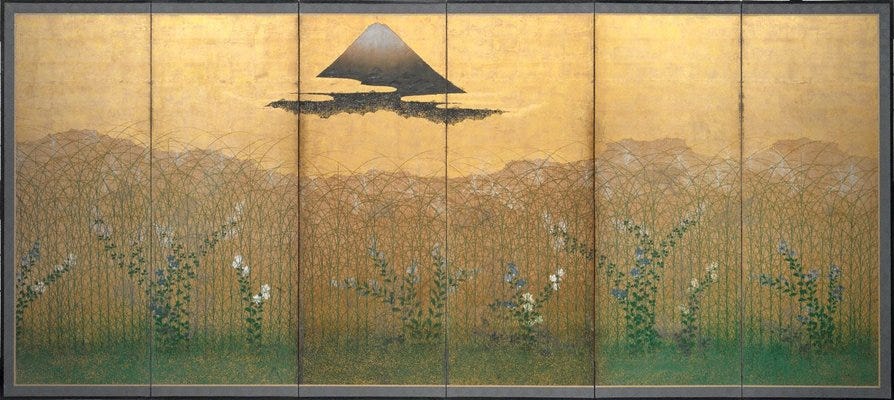I often return to the novel Musashi, Eiji Yoshikawa’s masterpiece of historical fiction about the life of Miyamoto Musashi, the foremost Japanese swordsman of the 17th century and arguably of all time. The story relates a grand narrative of romance, spiritual attainment, honor, camaraderie, betrayal, and the pursuit of skill superimposed on a Japan frothing with civil war, political turmoil, and rapid social change—a place the inhabitants called the ukiyo, the floating world, due to its instability.
Musashi himself enters the scene as a teenage miscreant in a small village, an orphan ostracized for his wild and arrogant nature. At twenty, he leaves to fight on the losing side of the battle of Sekigahara. Injured and mistaken for a corpse, he manages to escape the enemy and return to his village. After a several sordid events that decisively turn the villagers against him, and a subsequent year-long imprisonment, he finds himself completely unmoored from an already unstable society—with no home to return to, no skills, and no clear path forward in life. In this the world poses a question to Musashi. He answers with a roar.
Over the next ten years Musashi sharpens his mind and body to rival the two steel blades that each samurai carries on his waist. He wins duel after duel but refuses the splendor and status conferred on high-ranking samurai in favor of asceticism and solitude. He faces continual criticism and slander with impassivity. He learns to appreciate the arts: calligraphy, ceramics, poetry. He takes a disciple and shoulders the responsibilities of a teacher. He undertakes spiritual practice and masters himself. The savage youth who boasted about his abilities and terrorized the villagers becomes a man of almost unnerving calm and humility—a man whose towering strength is at first glance invisible but for an occasional glint in his dark eyes.
There are three lessons that I have learned from Musashi.
Rather than swallowing unpalatable emotions in favor of some spiritual stoicism Musashi gives them life through his actions. We see him scaling mountains while cursing stronger men than he; we watch him become angry and belligerent over perceived slights; we even find him one night unable to sleep, caught in the throes of infatuation, yearning to confess his love for a woman. Musashi reminds us that life is inherently vigorous; literally, from the Latin vigere: to be lively. He reminds us that the screaming and crying that accompany the beginning of life in some sense characterize the whole thing. And when he finally does become calm it is only because he has discovered an absolute stillness within himself.
In the prayer he says as his journey begins Musashi betrays a tremendous ambition: “Please test the lowly Musashi with hardship. Let him become the greatest swordsman in the land, or let him die.” This is the second lesson—do not lament the fact that you are being tested. Rather, seek challenges and when they come be grateful that you have not been forgotten, that there is still time on the clock, that you have another chance to stand up and lift your weary fists and fight.
Finally, Musashi stands across from his greatest enemy Ganryū:
“Muscles, flesh, nails, hair, even eyebrows—all bodily elements of life—were united into a single force against the enemy, defending the living organism of which they were a part. The mind alone was one with the universe, clear and untroubled, like the reflection of the moon in a pond amidst the ragings of a typhoon.”
The final lesson is that true strength feels like nothing at all.




